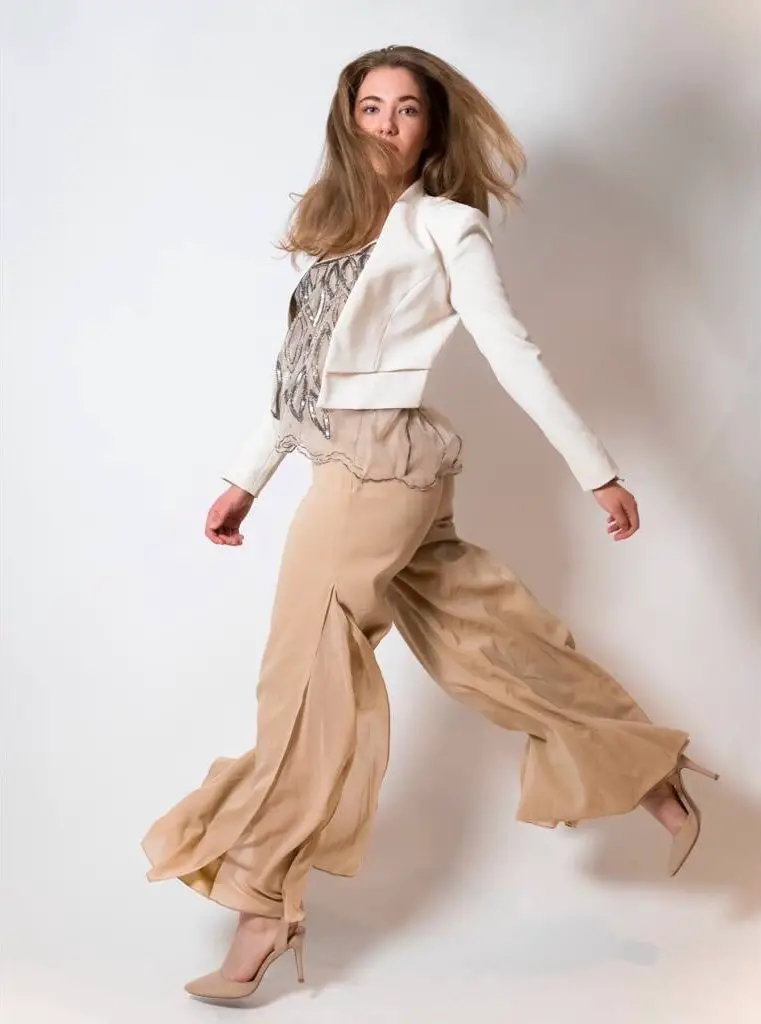What words usually come to mind when you flip through an issue of “Vogue” or “Harper’s Bazaar?” They are likely related to “objectified” or “elitist.” Meanwhile, “accepted,” “empowered” and “excited” are all popular choices when people leaf through Alexandra Hehlen’s brainchild, “Coulture Magazine.” Hehlen is a senior at the University of North Carolina, majoring in Journalism with a minor in Business. While she originally came to UNC to pursue a degree in international relations, she was unable to ignore her passion for the fashion industry.
Hehlen recalls how she got her start in her hometown of Los Alamos, New Mexico, a town much better known for its cutting-edge research facilities than interest in couture. “To give you some background, there’s a big science laboratory and people walk around in socks and sandals,” she says. “I remember approaching my local newspaper and asking them if I could write a column about fashion and they were like, ‘Uh, but what will you write about?’ And I had so many ideas ready, but they just had no clue.”
Her persistence paid off, and Hehlen created a successful fashion column that saw local people cluttering her email with questions about clothing and style. She recalls how this helped her realize her passion for the subject: “It was then that I discovered the joy of sharing fashion with other people and seeing the way that fashion can empower them. I would have neighbors knocking on my door, saying, ‘Oh my god, I’m wearing mom jeans!’ or I would get an email from someone saying they bought red pants and had no idea what the hell to wear them with.”
When Hehlen decided to go to UNC for its strong journalism and business programs, as well as her acceptance as a Robertson Scholar, a prestigious joint program between UNC and Duke University that awards participants with a full ride and immersive summer experiences, she thought fashion would stay a hobby. “I came to college and I thought that fashion would just be limited to my wardrobe,” Hehlen says. “I wanted to go into international relations and become an international correspondent. Then, I quickly realized that I missed fashion too much to just let it go like that.” Hehlen realized she wanted to work for a fashion publication on campus. The only issue? None existed at the time. This proved to be no obstacle for Hehlen, who got together with her best friend and decided to create a fashion magazine of their very own.
The new magazine would be called “Coulture,” and would stand as a rallying cry for those who love fashion but hate its narrow ideas of beauty. “We wanted something that wasn’t just like any other fashion magazine,” says Hehlen, “We wanted it to have a social aspect as well. We challenge beauty standards, and we accept models of all shapes, sizes and races. UNC has a diverse student body and we wanted to make sure that this magazine represented that.” “Coulture” not only differentiates itself with its fiercely body-positive and inclusive message, working to counteract the popular ideas, like what a “perfect” body looks like, that bombard young people in social media and magazines, but also because it’s entirely student run. The models, the writers, the photographers are all students and involved for no other reason than because fashion is what they love.
“Coulture Magazine” releases its print editions twice a year, and a veritable mountain of work goes into each lovingly crafted issue. Hehlen, as the editor-in-chief, no longer does much of the writing, but now oversees and guides the magazine’s overall aesthetic and artistic overtones. She remembers the fight to get “Coulture” off the ground her freshman year, though, when they had to scrape together money to print the first issues. “We didn’t have any university funding to do this,” she says. “We set our Kickstarter goal at $1500 and ended up raising $3000. The kickstarter really got us going. For the second issue, we ran into the money problem again. That’s when we met someone at the university who was about to start organizing a donation to create a fashion program within the journalism school. It was a serendipitous encounter that ended up working out in everyone’s favor. A part of the University’s extra-curricular component of those fashion courses is being with ‘Coulture’, so really, it was the perfect marriage.” Hehlen started with a staff of thirty and now oversees more than one-hundred-ninety people. “Coulture” now boasts its own office space and photo studio for students to work in.

The first and foremost goal of “Coulture” is to promote a wider idea of beauty. Hehlen says the staff pride themselves on featuring models of all sizes, shapes and races. They also put an equal focus on international and domestic aspects, moving away from a purely Western worldview. When asked about why their dedication to body positivity and diversity is so important, Hehlen responds, “If you’re featuring only a specific subset of models, you’re communicating fashion through a very, very narrow lens. And that’s very unrealistic. When you incorporate more models and more people and more perspectives, that’s when you start getting closer to the true nature of fashion, which is that it is widespread. Unfortunately, we have this standard that everything has to be perfect because, historically, that’s what has made people money.”
When asked about how her magazine promotes its value of accessible fashion, Hehlen first asserts that fashion is everywhere. The trends started by couture trickle down to the masses, meaning a blue sweater seen on a Prada runway can translate to the colors seen in the clothes you buy at Zara, to paraphrase from “A Devil Wears Prada.” “But from our angle,” she says, “In our photoshoots, we usually don’t feature extremely expensive items, or if we do, they’re often ethically and sustainably created. We try to make sure that everything is affordable. We want people to say, ‘Oh I could do that with my wardrobe.’”
As the magazine champions diversity, Hehlen must also be careful of an all-too-common pitfall in the fashion world—cultural appropriation. She explains how “Coulture” works to give traditional clothing the context and respect that it deserves. “We risk cultural appropriation when we start including items of clothing, specifically traditional items of clothing from different cultures, in our shoots. It’s harder to do a purely fashion-focused shoot with just those traditional pieces because you’re taking a bunch of pieces from different backgrounds and mushing them into one shoot with one theme. By doing that, you’re sort of imposing your own ideas onto them. And that can easily turn into appropriation. What we do instead is choose to feature people in conjunction with the clothes.” “Coulture” aims to do photoshoots that feature, for example, a person from Nigeria wearing what makes them feel at home. They craft personalized stories about why certain articles of clothing mean something, as opposed to the common practice of just dropping traditional pieces into stories with no context.
Hehlen, and many of those holding leadership positions at “Coulture,” are seniors. A big challenge in the upcoming year will be preparing the organization to pass onto a new group of people. While it is certainly nerve-wracking to see something so dear to your heart move to different hands, Hehlen is hopeful for the future. “Next semester, we’re really letting the new people take over and run the show while we’re there to help them,” she says, “When we leave, I hope that ‘Coulture’ is just going to keep growing. I think that at the end of the day, people find it very valuable. People are always asking for us to make more content. I think we’re really making some people feel empowered. And all I can hope for is that we keep doing that.”

















